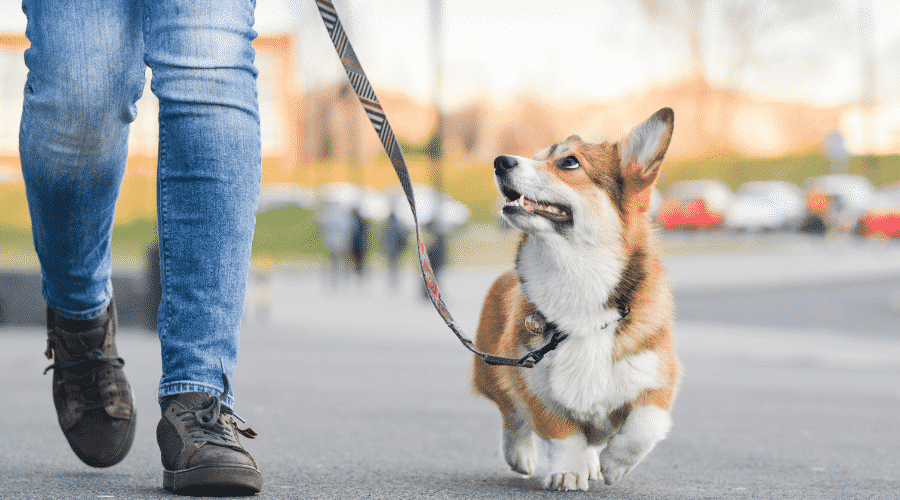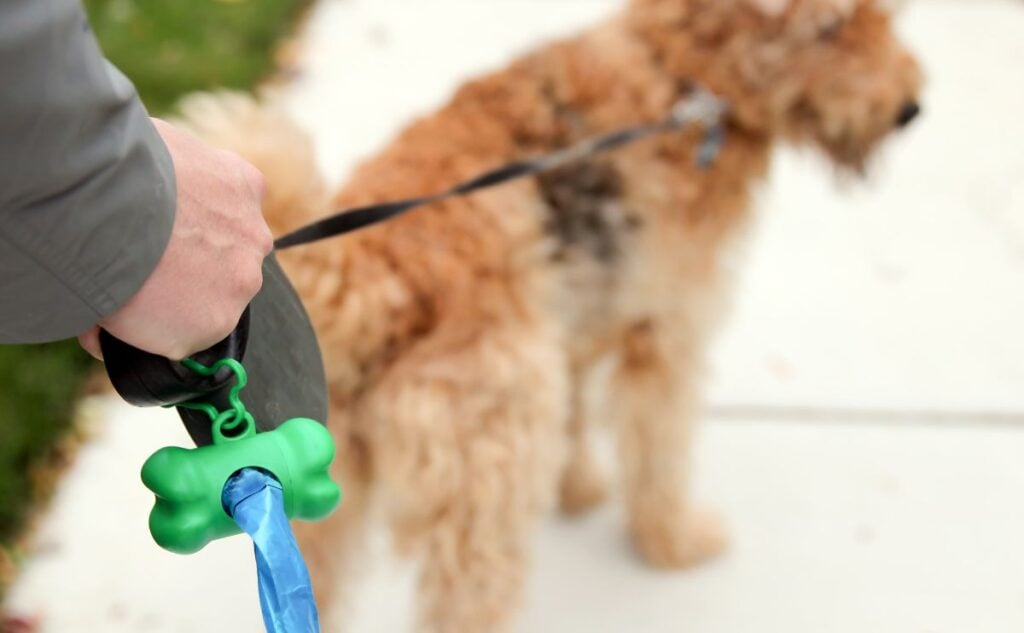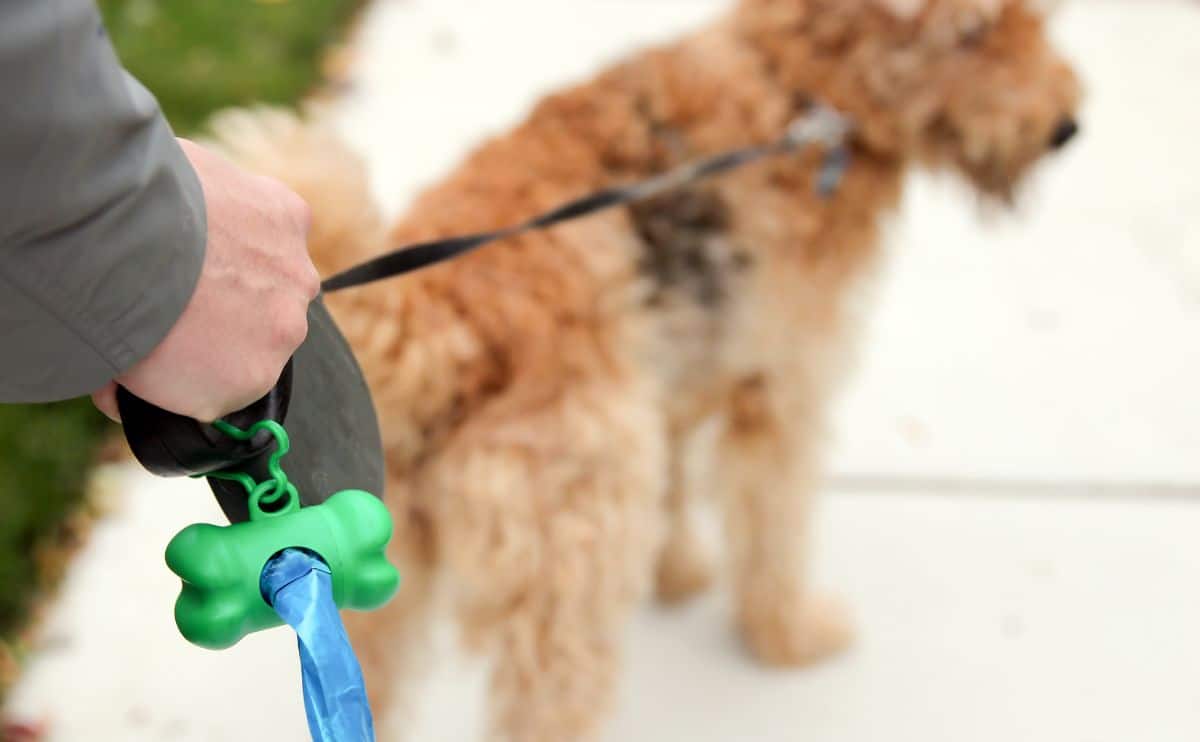Image credit: Saklakova, Shutterstock
Many dog owners are familiar with their pet’s bathroom habits. Some dogs, like my own Tiny, stick to a strict twice-daily schedule, while others go once with a larger output. But if your dog suddenly skips a bowel movement, should you be concerned?
Occasional missed bowel movements are usually harmless, but constipation in dogs is a serious concern that can affect any pet. How long can a dog go without pooping? When should you call the vet, even if your dog acts normal? We’ll explore these topics to help you understand your pet’s health.
How Long Can A Dog Go Without Pooping?
Dogs may experience temporary constipation for various reasons, but prolonged issues require attention. Veterinary consensus suggests consulting a vet if your dog hasn’t defecated in 48-72 hours, as this may indicate an underlying medical condition needing prompt care.
What About Problems Pooping After Surgery Or Illness?
Post-surgery or illness recovery, dogs may skip bowel movements for a few days due to reduced eating, limited activity, or medications like anesthesia, pain relievers, or antibiotics that slow digestion.
What Are The Signs Of Constipation In Dogs?

Beyond missing bowel movements for 48+ hours, constipation may present with these signs: straining or whimpering during defecation (also a diarrhea sign), excessive circling, frequent squatting, small hard stools (pebble-like), minimal watery feces with mucus, reduced appetite, vomiting, or lethargy.
What Causes Canine Constipation?

Understanding constipation causes helps distinguish between minor issues and serious health threats. While some cases resolve with home care, others signal severe or life-threatening conditions, necessitating veterinary consultation.
Common causes include low-fiber diets, sudden food changes, swallowed foreign objects (causing blockages), dehydration, inactivity, impacted anal glands, intestinal disorders, kidney issues, hernias, enlarged prostate, digestive tumors, anal masses, endocrine diseases (e.g., hypothyroidism), or spinal pain.
Dr. Rebecca MacMillan, a companion animal veterinarian in England, notes: ‘Dogs often face constipation from inappropriate diets or health issues. Dehydration—due to digestive upset, kidney disease, or other illnesses—is common, leading to smaller, firmer stools.’ She adds, ‘Arthritic dogs may struggle to assume proper positions for defecation, compounded by reduced activity, worsening constipation. Physical obstructions like foreign bodies, tumors, or hernias also frequently cause issues.’
Keep An Eye On Older Dogs
Senior dogs face higher constipation risk due to slower metabolism and reduced activity, which impairs GI function. Age-specific diets may help manage this.
What If My Dog Hasn’t Pooped But Is Acting Normal?

A dog acting normal but missing a bowel movement is usually not alarming. Encourage hydration, exercise, and mild fiber (e.g., canned pumpkin). However, consult a vet if no stool in 48+ hours with straining, lethargy, or appetite loss.
My Dog Hasn’t Pooped In 4 Days: Is That An Emergency?
Yes—4 days without defecation is an emergency. Immediate veterinary care is critical, as this may signal life-threatening blockages, obstipation (compacted feces), or megacolon (permanently enlarged colon).
Obstipation involves hardened fecal buildup making defecation impossible, often requiring IV fluids, enemas, and manual removal under anesthesia. Left untreated, this can stretch the colon, causing megacolon—permanent enlargement requiring lifelong management or surgery.
Dr. MacMillan shares a case: A young Bulldog with vomiting and no stools for days had impacted feces confirmed by X-rays. She required enemas under anesthesia and fluid therapy, resolving after dietary changes. This highlights risks of prolonged constipation, including pain, vomiting, and megacolon.
Consider Pet Insurance

Severe constipation and related issues can incur high vet costs ($800-$7,000 for blockages). Pet insurance helps cover these expenses—enroll early to avoid pre-existing condition exclusions.

How To Help Your Constipated Dog
For mild cases, try home remedies like increased hydration, exercise, or fiber (e.g., canned pumpkin). Consult a vet for safe laxatives or stool softeners.
Frequently Asked Questions
Can I Give My Dog A Laxative For Constipation?
Never give laxatives without vet approval. Vets may recommend safe options like Laxatone, Miralax, or NaturVet Stool Ease with proper dosage.
How Often Should A Dog Poop?
There’s no set frequency—dogs may poop 1-3 times daily, depending on their unique digestive rhythm.
My Dog Hasn’t Pooped In 24 Hours: What Should I Do?
24 hours without stool is normal for some, but if your dog typically poops 2-3 times daily, try fiber (canned pumpkin, wheat germ) to stimulate bowel movements.
My Dog Hasn’t Pooped In 2 Days: Do I Need To Call My Vet?
Contact your vet if no stool in 48+ hours, particularly if fiber supplements haven’t helped.
My Dog Hasn’t Pooped In 3 Days: Is This Dangerous?
72+ hours without stool is dangerous—contact your vet immediately.
How Can I Prevent My Dog From Becoming Constipated?
Prevent constipation with high-fiber diets, probiotics, hydration, and regular exercise.

